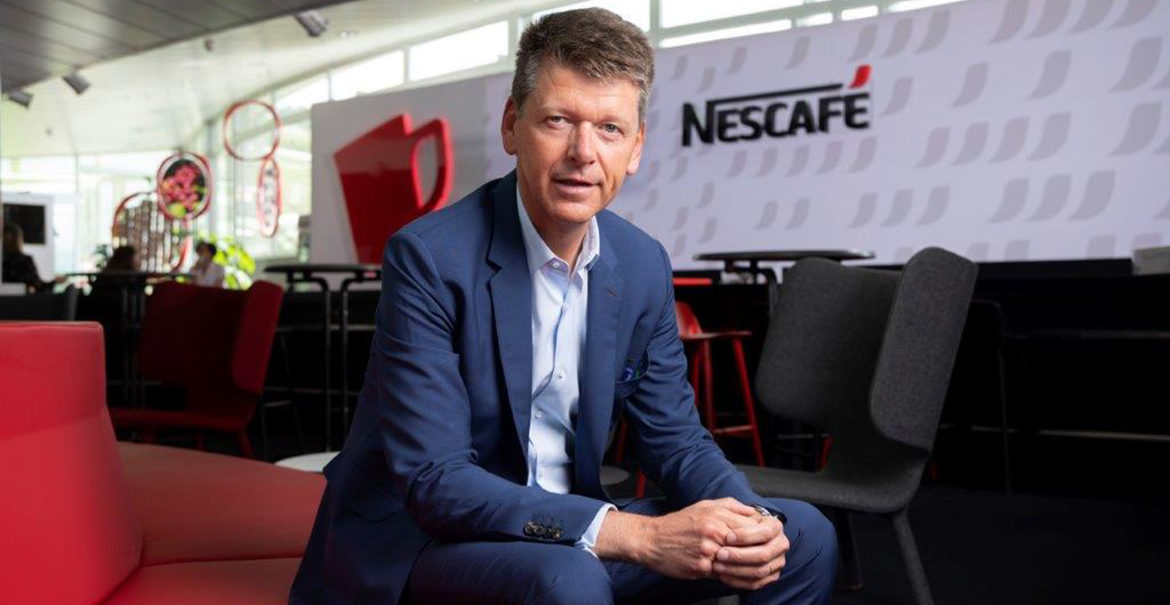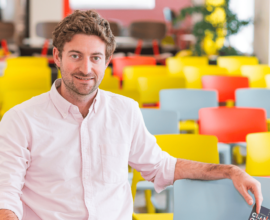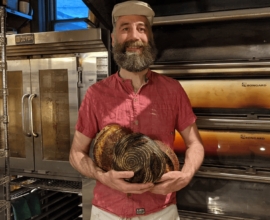François-Xavier Roger
Seizing opportunities as they come along
![]() Reading Time: 10 minutes
Reading Time: 10 minutes
EVP AND CFO NESTLÉ
A truly international executive, Francois-Xavier Roger has lived on four continents. He learnt the ropes of high finance by joining pharmaceutical company Roussel Uclaf as their controller in 1986. The Frenchman stayed with the group for 14 years, relocating as mergers occurred, and climbing the ladder to a VP Finance role at Aventis International in Tokyo. From 2000 to 2008, he was CFO Asia for Danone, and later the group’s Head of Finance, Treasury and Tax. He then became CFO of Millicom, a global mobile phone operator based in Luxembourg, before taking up the role of CFO at Takeda, Japan’s largest pharmaceutical company.
He has demonstrated a stellar professional track record, ascending to his current position as Executive Vice President and CFO of Nestlé, the largest food conglomerate in the world. On paper, this trajectory is the work of a calculating careerist. In reality, Francois-Xavier Roger admits that he did not have any specific outlook or dream until late, nor any ambition to reach a certain leadership level. His approach has always been to seize openings as they presented themselves, in an opportunistic way: “I have tried to constantly remain open, seek challenges, and take risks… which is not always easy, but has paid off for me in the long run”.
We chat with a leader who exudes an air of humility and gratitude: “Look at this magnificent view from my office, over Lake Geneva with the Alps in the background!” he beams whilst turning his screen for us. And we discover his unconventional views as to what it takes to be a successful CFO and what ambition should really be about.
Looking back on your childhood, can you pinpoint any signs that might have predicted your career path?
Frankly, nothing comes to mind. I was born in Brest, Brittany, and I was raised in Nantes. My father was an engineer who spent his entire career in Nantes. My mother is an artist, she paints and sculpts. I was a good all-round pupil and my schooling was pretty conventional. My parents didn’t push me or my siblings in any particular direction. If we consider my family background, there was nothing I could point to that steered me towards spending my entire adult life abroad, working in finance, or taking on senior executive roles.
Why did you decide to join Audencia?
There were lots of physicians in my family, so I came close to applying to medical school. I wasn’t particularly good at maths… but don’t ever repeat that! Otherwise, I had a well-balanced skillset and was interested in many subjects but no specific gift or calling. So, I thought that a business school would be an interesting path to take as it would open up a vast array of options.
What is your fondest memory of your time at the school?
That’s an easy question… I met my wife who was also studying at Audencia! We now have three children, two daughters and a son, who have all studied in business schools too.
What aspirations did you have when you were studying at Audencia?
Frankly, I had no clear-cut idea as to what I would do after graduating. However, I enjoyed the curriculum, and I learnt a lot. I was curious about marketing, but I was particularly interested in the finance courses. I wasn’t tempted by a career in banking, accounting, or sales, because by nature, I am not very technically minded. I suppose, at the time, the only thing I had figured out was that I had a preference for general business. I really enjoyed the 3-months exchange at Ohio State University and I returned there for my MBA. This was my first international experience and it was as enriching as it was challenging. At the time, there were limited means of staying in touch with your loved ones back home, so it felt like a real expedition. At 23, I was the youngest student and the only one who had very little professional experience… whereas some of my MBA classmates were veterans from the Vietnam war!
Were your professional transitions carefully planned?
When I left Audencia in 1984, the royal pathway at the time was to work at Arthur Andersen Consulting, and most students were obsessed with landing a job there . Instead, while looking for my first job, I decided to join a pharmaceutical company as a financial controller. This has turned out to be a recurring theme throughout my career: never go for the popular nor the obvious choice.
I made countless decisions, which my peers sometimes criticised. For example, for my first international role, an opportunity arose for me in London. When I told my friends that I was more tempted to move to South Africa, very few of them understood my decision and warned me off, telling me, “if you go there, you will be forgotten!” It was not an easy move for my wife and my two young daughters because South Africa was a dangerous country at the time, with something like 35,000 murders a year. We had to live with an armed guard at home, not a pleasant habit to get used to, but one we accepted as part of the experience. Looking back, it was absolutely the right decision because this was my chance to become the CFO of a small company at 28, and working in an emerging market proved a much steeper learning curve for me than would have been the case in London. A few years later, I bumped into one of my former bosses who offered me a CFO role in Mexico. I admitted that I didn’t speak Spanish, a detail that he completely shrugged off, and one month later we had moved. Again, three years later, a former boss called me unexpectedly to offer me a role in Japan as CFO of the APAC region. I didn’t know Tokyo – in fact, I had never set a foot in Asia before, but in less than a month, my family and I had settled there.
None of the steps that I have taken between roles, companies and countries was ever part of any grand preconceived plan. I simply identified, assessed, and seized opportunities as they presented themselves. And I always made sure that my next move would allow me to grow and learn something different. This approach has enabled me to become the CFO of a $25M business, then a $200M business, and today I am responsible for over $90B, across multiple continents. The journey has not always been easy though, and in particular, it has involved some tough decisions for my family; but my wife and I have managed to make it work for us.
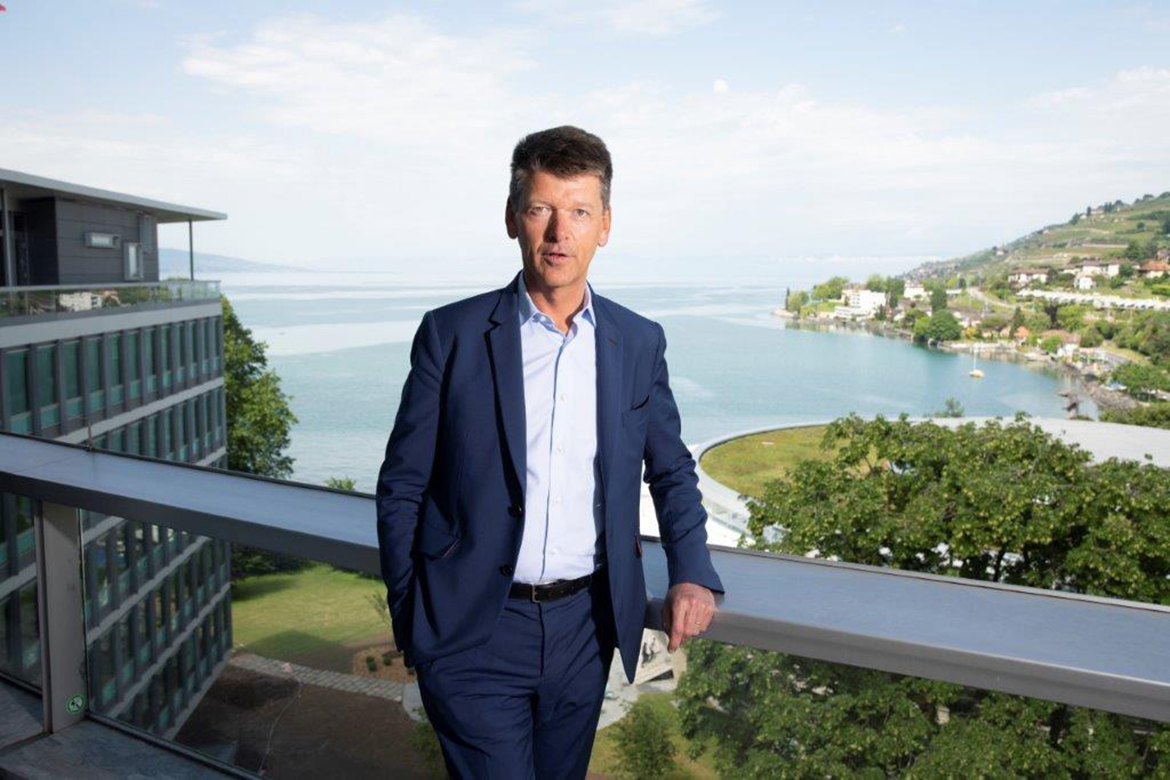
You landed your first CFO role at the age of 28. Did you feel ready for it?
I clearly wasn’t! The only job for which I was probably fully equipped is my current job, because this is my third CFO position for a large listed company, and having worked for Danone before, I was familiar with the industry. For all my previous career moves, I have just had to trust that I would be able to learn on the job.
I always encourage younger people to stretch themselves. When considering a new role, as long as the gap between the current and the expected skillset isn’t excessively wide, what matters is to trust in your capacity to learn. Once in the role, you can’t be shy or overconfident, you have to be aware of your own limits, and raise your hand for help. Don’t be afraid to ask questions, especially from the people working under you. It really doesn’t matter if you look a fool for a minute.
When I offer a colleague promotion, the reaction is often: “It’s too soon”, “I like what I’m currently doing”, or “I can’t move up because I haven’t completed what I have to do”. But our work in a role is never complete, and you will never feel ready to move up. Understanding this early is one of the reasons why I am in my position today.
What are the biggest misconceptions that people have about what it takes to be a successful CFO of a multinational corporation?
Many people believe that my job requires a lot of technical knowledge, but I have never met anyone in finance who didn’t have the technical ability to do the job. Aside from a few areas that are more complicated such as treasury, it honestly isn’t rocket science. In my role at Nestlé, I am not expected to master the financial technicalities, but to display the business acumen to understand what consumers want.
Soft skills are paramount, especially the emotional intelligence required to understand my direct reports, my peers, my bosses, and my shareholders. The second misconception is that being a CFO is a one-man show. But this is largely a team effort and I am fortunate to be able to rely on and delegate to very competent teams of professionals. Many people also imagine that a CFO is primarily a cost-cutter. Cost- cutting, or rather removing cost inefficiencies, is often necessary as consumer demand evolves, but my job is much more interesting if I focus on investing for growth.
What is your proudest achievement?
When I took the CFO role at Millicom, a telecom company based in emerging markets, it was only ranked #50 on Nasdaq, in terms of market capitalisation. But the company was growing almost 50% per annum and it was exciting to be a part of the journey. Ultimately, we brought tens of millions of citizens access to mobile telephony, i.e., to modern technology. Nestlé is Europe’s largest company in terms of market capitalisation, and indeed one of the largest in the world. It is fascinating to imagine how we can deliver social value by bringing nutritional products to developing markets whilst minimising our impact on the environment. We also have a duty towards our shareholders who have invested more than 300 billion dollars in the company; so, we want to ensure that they reap some benefits as well.
Overall, what I have always found most rewarding is building something that will last and will contribute to creating value for the company and society at large. It is clearly possible to achieve three objectives at the same time: do good for the business, for people and for society. This is what we try to do at Nestlé, even if it is not always easy. Aside from sales and profit, I am also proud to have built teams and enabled people to grow.
What is your definition of success?
Many people think that I am successful because I hold a professional position which they consider to be important. In my view, this way of seeing things is simplistic and wrong: success should not be measured in terms of professional milestones. Success is a subjective notion and having a balanced and harmonious family life or developing a social project is also of merit. I also look back on my journey with humility and am aware that luck plays a big role: unexpected phone calls and meetings that ended up bearing fruit several years down the line have shaped my career. Modesty is a virtue…I could have been somewhere else doing something totally different!
What are your top tips for Audencia students?
You need to apply yourself to your work, but I am sceptical about the concept of “hard work”. I do not believe in the culture of working long hours. In my experience, it is much better to focus on the essentials. I will also share a point that I often make to my children: “the only ambition you need is to aspire to be happy”. It might sound easy for me to say, and a bit naive, but I am absolutely convinced that it is true. Work is only one way to feel fulfilled. What really matters is to be in the right frame of mind to seize the best opportunities, to try to do something that brings joy, and to aim for a sort of personal harmony. Young people are better at grasping that concept than we were, but it is our responsibility to remind them about it.
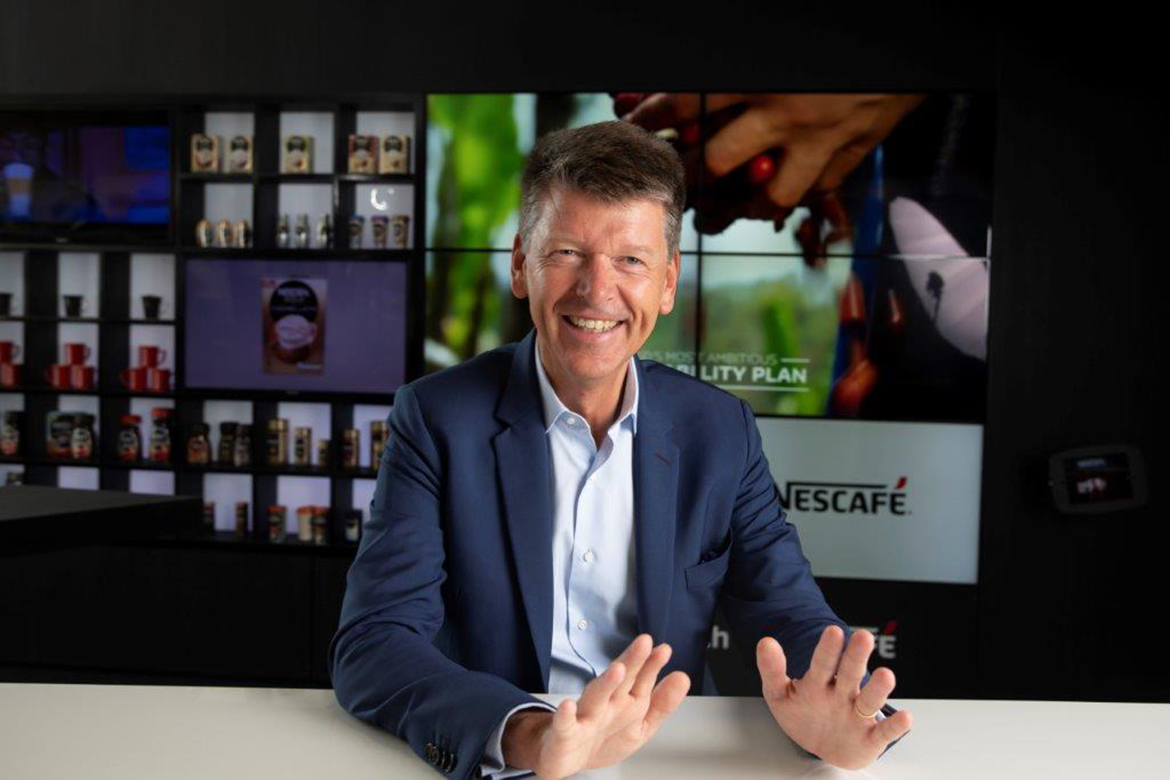
What’s your typical working day like?
From Monday to Friday, I focus purely on work. I start between 8-9 each morning and finish between 8-9 in the evening. I usually have back-to-back meetings for 12 hours straight, and lunch is spent discussing business matters. There is not much time to fit much else in, which is less of an issue now that my children are grown up. But I am trying to avoid working over the weekend in order to preserve my personal life. And I make sure that my teams and colleagues do the same. I would never email them during their holidays or over the weekend – except for dramatically urgent issues…. which are actually rare.
At Nestlé, contrary to many companies, the doors on the executive floor remain open. We are not locked up in an ivory tower and I find it rewarding to work closely with the people on the ground. 2020 has obviously been an unusual year, but half of my time is spent travelling, meeting the teams and visiting plants. My whole diary is managed by my assistant and I don’t need to worry much about admin or logistics; I am very well “taken care of”. The flip side to this is that I must focus 100% on the job: I can never take a back seat. People expect me to constantly be leading from the front, and that can be exhausting at times. But that comes with the job!
What is your secret to handling the pressure of your job?
As a nature lover, I try to take advantage of all of Switzerland’s assets. We live within walking distance of my office, up a mountain, in beautiful, quiet, and safe surroundings. I go running, cycling, and hiking. I am not an expert skier but since we moved here, I ski regularly. We have a house in La Baule on the Atlantic coast; I like to go there and recharge my batteries by the sea. And I get my dose of urban culture through my business travels. This is my way of maintaining a healthy work-life balance: I try to make the most of any situation I happen to find myself in.
I also spend as much time as possible with my wife and I use my holidays to be around my friends. With the job I have, it is essential to be disciplined and to proactively plan my personal life so as to protect it.
However, I’m not going to lie, managing the pressures of my job is a daily challenge. I deal with it by forcing myself to take a step back and see the bigger picture. I remind myself that I have already moved on from the problems that were troubling me the previous week; so, chances are, in a weeks’ time, I will have found the solution to my current problem and will have forgotten about it. I also find it easy to open up to my team when I need help, but I try to avoid passing on too much of the pressure to others.
Do you have any plans for the weekend?
My son is getting married in ten days, so this weekend we’ll be in wedding preparation mode. Covid-19 has already forced us to push back the event several months, but this time it’s going ahead, and I’m looking forward to a beautiful ceremony in southwestern France.
